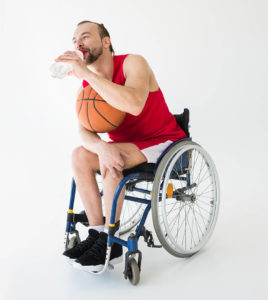As an intermittent catheter user, staying adequately hydrated is crucial for maintaining bladder health and flushing out bad bacteria. Our bodies are made up of two-thirds water, making water is an essential nutrient to keep the body functioning at its optimal level. Insufficient water intake can lead to dehydration and an increased risk of urinary tract infections.
What is Dehydration?
Dehydration occurs when you use or lose more fluid than you take in. If you become dehydrated, you may feel thirsty, have dry mouth, get a headache, feel sleepy, or fatigued. Some people may also feel dizzy or lightheaded when dehydrated.
Signs of Dehydration
Recognizing when you are dehydrated is easier than you think! Signs of dehydration are visible in your urine. Generally, your urine should be a light pale yellow. If your urine is dark and strong-smelling, that is a key sign of dehydration. Use the urine chart below to help check for signs of dehydration.

*If your urine is completely clear, you may actually be drinking too much and flushing electrolytes out of your body.

Preventing Dehydration
It is recommended to drink 64 ounces of water a day, but overall water intake can vary depending on age, lifestyle, overall health, and even gender. Ask your health care provider how much you should drink.
It is important to not deprive your body of fluids, so if you feel thirsty… DRINK. Don’t try to drink less to reduce the need to self-cath! You could be doing more harm than good.
Tips for Healthy Hydration
- Make drinking water a daily habit. If you don’t like plain water, you can add lemon, lime, or fruit juice for flavor.
- Avoid large amounts of caffeine or alcohol.
- Fit your fluid intake around your daily routine. Set an hourly alarm to remind yourself to drink a glass of water.
- Drink more when the weather is hot.
Intermittent catheter users can help prevent a UTI from developing by drinking plenty of fluids. If you suffer from recurrent UTIs, this may be a sign you aren’t drinking enough. Aim to increase your water intake by at least 1 ½ liters a day to help flush out harmful bacteria. You may have to increase how often you self-cath when you increase your fluid intake.
What topics do you want to read about?
We’re interested in your feedback on what topics you’d like to read about. Please contact us with your suggestion and we’ll do our best to cover topics that interest you.
